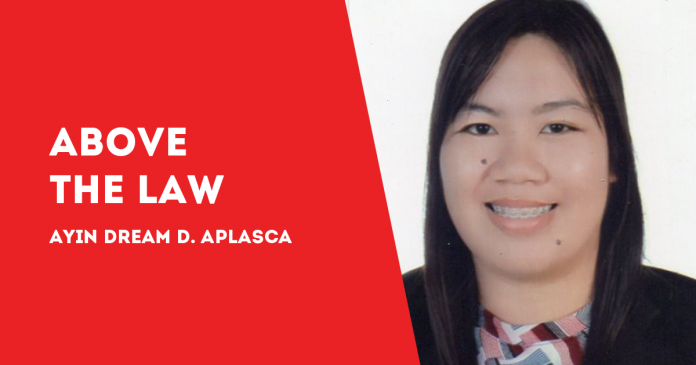
THE NATIONAL government launched a campaign to end violence against women. This is an 18-day campaign with the goal of protecting women’s rights and to address all forms of gender-based violence.
The key activity of this campaign is to promote and educate people on the Safe Spaces Act. I already discussed this in my previous article earlier this year – its core provisions, the penalties, and mechanisms.
Let me share to you another law which is also for the protection of women and their children.
The pandemic is far from over. Thus, it breeds various forms of violations against women including their children. One of the laws that protect women and children is Republic Act 9262 or the Anti-Violence Against Women and their Children Act.
This law observes the Bill of Rights in the 1989 Philippine Constitution and the fundamental rights and freedoms guaranteed under the Universal Declaration of Human Rights, the Convention on the Elimination of All Forms of Discrimination Against Women, and Convention on the Rights of the Child.
The law protects women and children against sexual violence, physical violence, and psychological violence.
Physical violence refers to acts that include bodily or physical harm.
Sexual violence refers to an act which is sexual in nature.
Psychological violence refers to acts or omissions causing or likely to cause mental or emotional suffering of the victim such as but not limited to intimidation, harassment, stalking, damage to property, public ridicule or humiliation, repeated verbal abuse and mental infidelity.
Economic abuse refers to acts that make or attempt to make a woman financially dependent.
The law is different from other criminal acts because the offender has established a relationship with the victim when they are married couples, former spouses, couples with a common child, whether legitimate or illegitimate, the legitimate or illegitimate parent of the victim, and sexual or dating relationship, which include couples living together without the benefit of marriage, or has a continuing romantic involvement over time, with or without sexual intercourse.
Under the law, women and their children have the right to be treated with dignity and respect, to have confidentiality, to have access to free public legal assistance, to paid leave of absence, and to be informed of the rights and services they are entitled to, including protection orders.
They should also have access to mandatory services that include temporary shelter, psycho-social services, recovery or rehabilitation programs, livelihood assistance, medical assistance, and counseling.
The law also acknowledges that women who have retaliated against their partner or who commit violence as a form of self-defense may have suffered from Battered Woman Syndrome (BWS). Under the law it refers to a scientifically defined pattern of psychological and behavioral symptoms found in women living in battering relationships as a result of cumulative abuse.
In the determination of the state of mind of the woman suffering from battered woman syndrome at the time of the commission of the crime, the courts shall be assisted by expert psychiatrists or psychologists.
Violence against women and their children continues to be an obstacle to achieving equality and achieving human rights. Let’s help each other in protecting all women and their children at all cost.
Various agencies to contact are the following: Inter-Agency Council on Violence Against Women and their Children; Inter-Agency Council Against-Trafficking; Local Committee on Anti-Trafficking and VAW; Barangay VAW Desk; and the court of justice./PN

